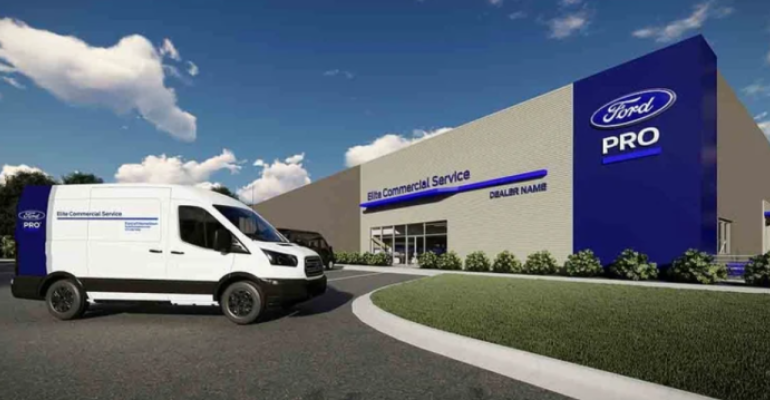With the first installment of the new labor agreements due with the distribution this week of $5,000 ratification bonuses to union members, the cost of the UAW’s 46-day strike against General Motors and Ford is coming into focus at both companies.
Speaking at a conference organized by Barclays Bank, John Lawler, Ford’s chief financial officer, says the volume of new vehicles lost in the strike cost the automaker $1.7 billion.
Ford lost 100,000 units during the strike compared to GM’s 95,000 units and an estimated $1.1 billion. Stellantis has not offered post-strike guidance yet.
Lawler, however, emphasizes Ford’s underlying resilience will boost the company’s performance. He estimates the contract will cost the automaker $8.8 billion over its 54-month duration, “but that’s before efficiencies.”
 GM pegs the cost of the new labor agreement at $10 billion over the next 54 months, which will add $500 to the cost of each vehicle next year, growing to $575 in 2025.
GM pegs the cost of the new labor agreement at $10 billion over the next 54 months, which will add $500 to the cost of each vehicle next year, growing to $575 in 2025.
The size of the contract is roughly double what Ford anticipated at the start of negotiations, Lawler says, but the company is moving to cover the added costs.
“Now it’s our job to go off and drive productivity and efficiency,” says Lawler (pictured, left). “And we need to do that by reducing the number of hours it takes to build a vehicle, simplifying designs and reducing complexity as well as driving increased efficiencies through our factories, and that’s what we’re focused on.”
Lawler cites another immediate challenge: The pricing of electric vehicles is changing quickly. “Pricing has come down much quicker than we expected, or I think anybody else expected, in the segment…I don’t see that there’ll be much more price compression next year.
“But over time, I think we’re going to continue to see significant price compression because as we’ve moved from early (EV) adopters to early majority, those customers are not willing to deal with some of the issues that early adopters were – one, they are not willing to pay a premium. So over time, we see prices for EVs communizing with gas vehicles.”
Ford’s strengths in the commercial-vehicle sector will help keep the company’s transition to EVs stable, Lawler says. “There’s growth in commercial. The (Inflation Reduction Act), the CHIPS Act, et cetera, is driving a tremendous amount of demand for commercial vehicles.”
Lawler says Ford anticipates full-year 2023 adjusted earnings before interest and taxes of $10 billion to $10.5 billion. That would include $1.7 billion in strike-related lost profits – $1.6 billion of that from the fourth quarter – owing to interruptions in production of high-margin trucks and SUVs and, in turn, vehicle wholesales about 100,000 units lower than planned.
Ford generated $4.9 billion of net income and $9.4 billion in adjusted EBIT through the first three quarters of the year, prior to full effects of the work stoppage. “So, if you take that $10 billion to $10.5 billion, if we hadn’t lost that volume due to the strike, we would be at the high end of our original guidance of $11 (billion) to $12 (billion),” Lawler says.
Like GM, Ford expects industrywide sales of 16 million vehicles in 2024.
Lawler predicts the amount of disposable income needed to buy a vehicle is set to decline, which will cut into dealer profits by requiring larger incentives.
“On internal-combustion vehicles, we don’t think that there’s any pent-up demand left,” the CFO says. “We don’t think that there’s going to be any pricing upside because of imbalances between supply and demand. We think we’re right at the balance there between supply and demand. So, pricing is going to be important. That’s why we see over the next year or so prices coming down, some (prices) back to that 13.5% of disposable income (needed) to buy a new vehicle.”





